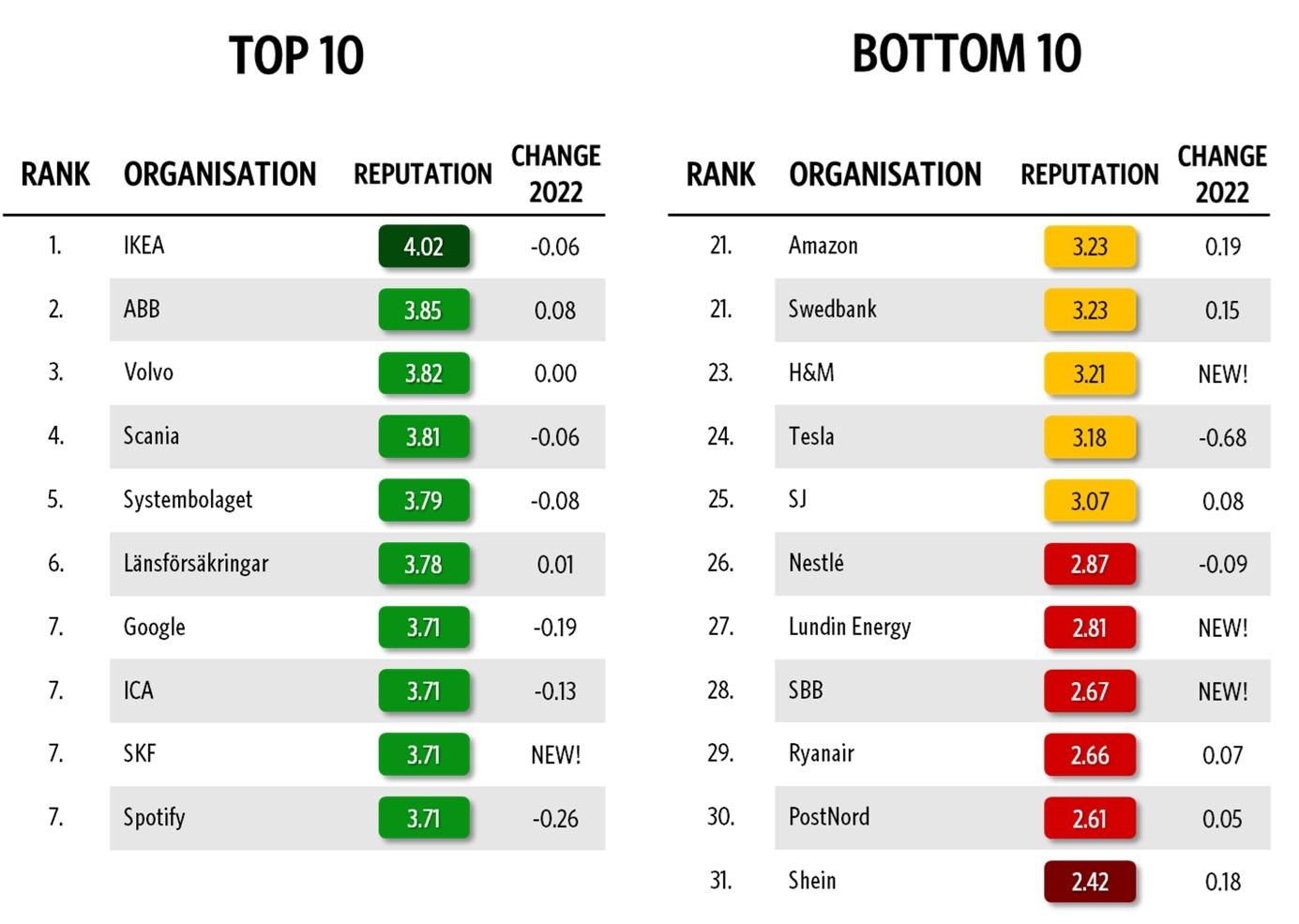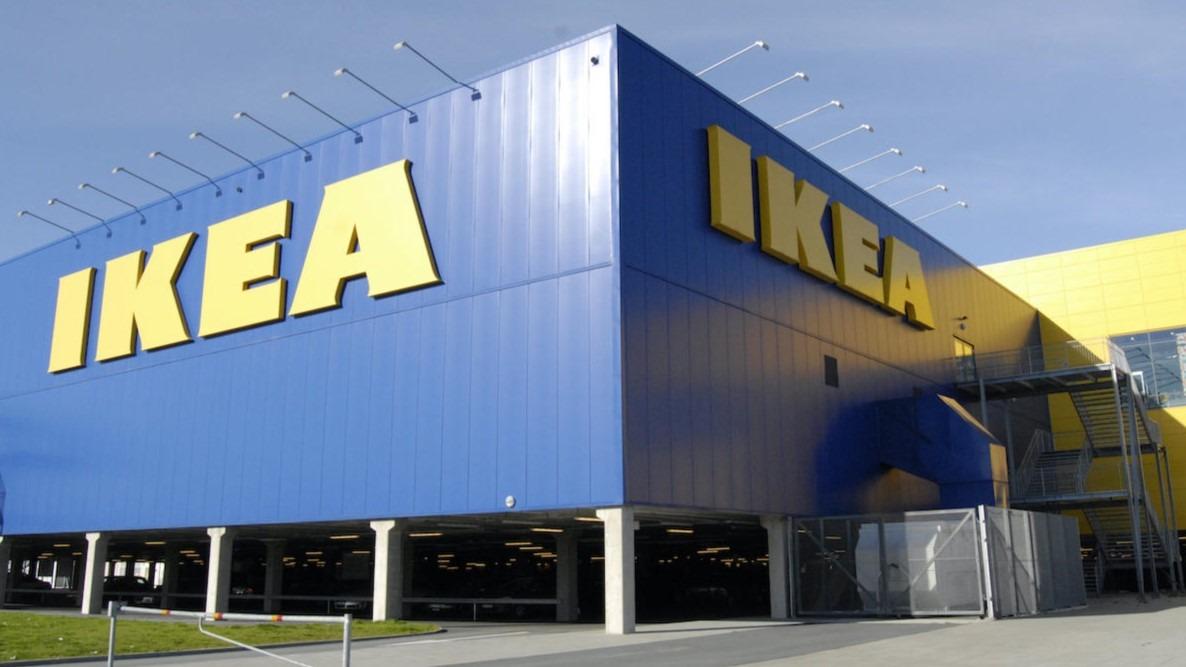IKEA is the most reputable company in Sweden, Tesla takes the biggest hit
IKEA is still the most reputable company in Sweden. The Chinese clothing company Shein is at the bottom. This is according to the latest study by Reputation and Trust Analytics, which reveals how the Swedish people rank companies’ reputation. Tesla has fallen the most, followed by Spotify, which was second on the list last year and is now in joint seventh place. At the bottom with the lowest reputation is a newcomer – construction company SBB.
The average reputation score has dropped this year, which can probably be linked to the general world situation.
– This is partly due to a darker view of everything, and partly because more is required of companies for us to trust them. This is the fifth consecutive year the survey has been conducted and the trend is clear. People are looking for security and transparency rather than adventurousness and innovation. This is reflected in the companies that make it to the top of the list. Reputation is becoming increasingly important for companies’ long-term success, says Helene Foxberg, Senior Advisor at Reputation and Trust Analytics.
Affected by conflicts
IKEA’s reputation decreased slightly in 2023 but is still by far the strongest in Sweden. Spotify’s reputation has dropped considerably and ends up in a shared seventh place, but Tesla has faced the biggest loss.

– When the first survey in Sweden was conducted in 2019, Tesla had a good reputation. Last year they were sixth most reputable company in Sweden. Their rating has plummeted in the wake of the contract dispute and reduced trust in Elon Musk, and they are now on the list of companies with the lowest reputation, says Ingrid Landahl, founder of Comma, experts in crisis management and corporate communications.
Top and bottom lists are based on which companies spontaneously come to mind when respondents are asked which companies operating in Sweden have a good or low reputation. Respondents are then asked whether they would consider applying for a job, investing in, or buying the company’s products and services. In this way, the relationship between reputation, stakeholder behavior and the company’s long-term competitiveness can be measured.
Responsibility is the dimension of reputation that has the greatest impact on the behavior of Swedish public.
– The annual survey shows that sustainability continues to grow in importance for the Swedish public. Companies need to become even better at communicating their sustainability work while striking the right balance so that they won’t be accused of greenwashing, Landahl says.
The top list includes three non-consumer companies: ABB, Scania and a newcomer SKF.
– It is obvious that we are proud of our industrial companies in Sweden because they are spontaneously mentioned in the survey and receive good ratings. It also shows that one can create a strong relationship with a company that they do not meet in everyday life as a consumer. The relationship is then based more on what one reads and hears about the company, says Landahl.
SBB is newcomer at the bottom
Among the ten lowest ranked companies there are three newcomers: SBB is ranked 28th at the bottom list, after financial difficulties and media attention, Lundin Energy is in the bottom list again, despite a new focus on renewable energy and a name change to Orrön Energy AB, which shows that this information has not reached the public.
H&M has also appeared to the bottom list, although the company’s reputation is on a mediocre level.
At the very bottom is the Chinese fashion company Shein and just above them is PostNord, which has remained at about the same level since 2019.
– A low reputation affects factors such as sales, the ability to recruit and attract investors. It simply makes it harder and more expensive for a company to operate, says Helene Foxberg.
Methodology
Reputation and Trust Analytics uses a data-driven methodology to map companies’ reputation and analyse how it affects stakeholder behavior. The analysis of companies on the Swedish market is the fourth in the series and is based on 3 509 Swedes spontaneously choosing which companies they think have a high or low reputation. Through 7 928 completed surveys, the respondents then ranked the reputation in eight dimensions, including leadership, innovation and responsibility. They were then asked about the extent to which they are willing to support the company, such as buying products and services, investing or looking for a job. This establishes a measurable link between reputation and the ability to operate in the market.
Contact:
Helene Foxberg, Senior Advisor, Reputation and Trust Analytics
+46 73 556 6926
helene.foxberg@reputationandtrust.com


